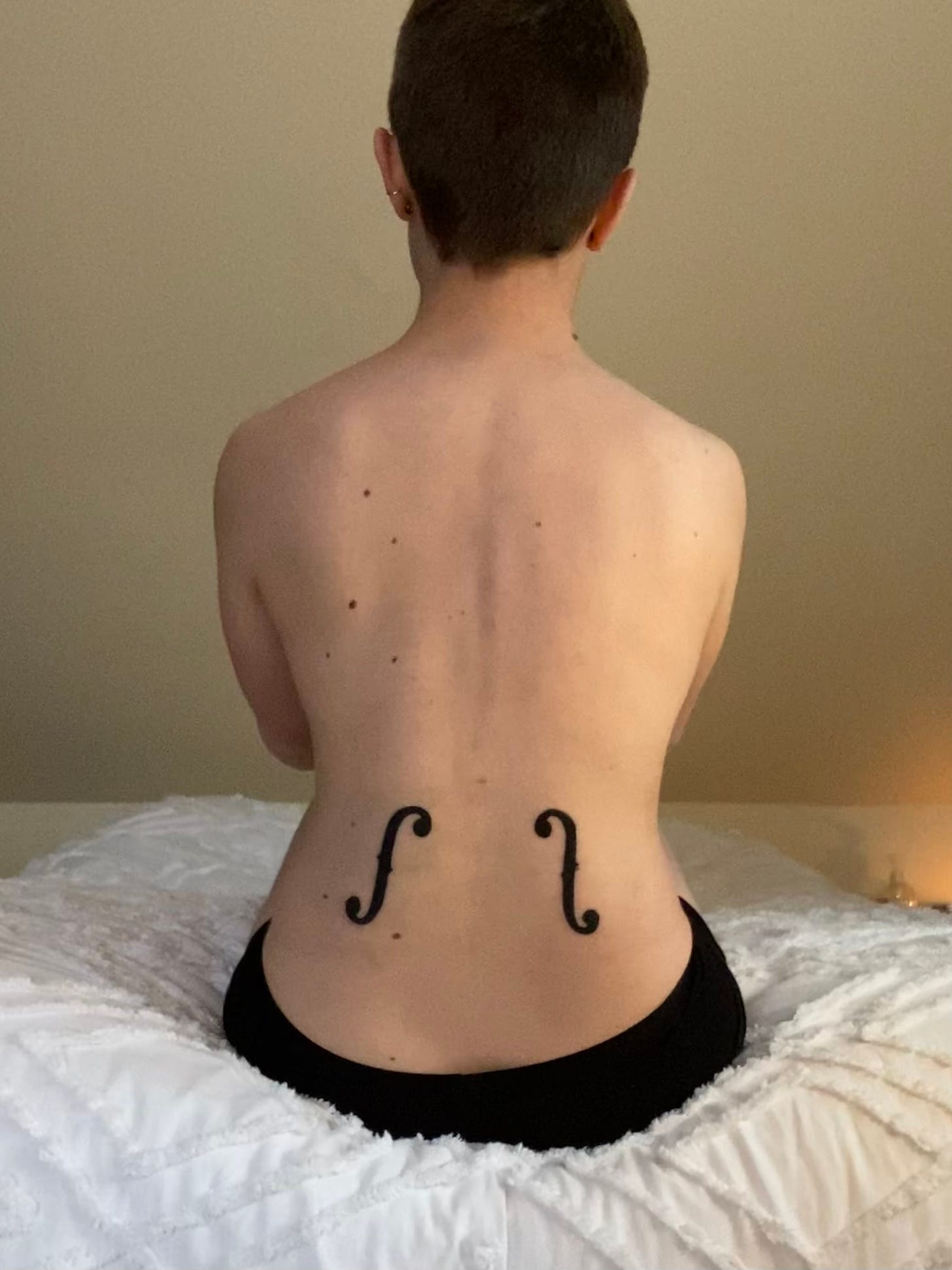Organologies is an in-progress essay collection about the cello and the queer, trans body. These genre-fluid essays include elements of cultural criticism, memoir, and fantasy.
The title refers to both the study of musical instruments, and the branch of biology dealing with the organs of plants and animals.
The cello is modeled after the “female form.” Its body is widest at the upper and lower bouts and smallest at the waist. At the end of its long neck is a head, or scroll, sometimes carved with human features.
It’s made from once-living materials: wood, ebony, ivory, horsehair. On Baroque cellos, like the one that I play, the strings are made from sheep gut.
The cello is often described as “closest to the human voice.” But the instrument has a range of over five octaves, much wider than that of any one person. Though most resonant in its bass or tenor range, it can reach all the way up to soprano.
Playing the cello is a full-body experience, wrapping one’s arms around the instrument while holding it between one’s legs. When a musician reaches a certain level of excellence, the instrument becomes an extension of their body.
This is the topic of “Metamorphosis,” an essay about Handel’s cantata Apollo e Dafne. In it, I write about four transformations: Daphne into tree, wood into cello, musician into instrument, and my own transition.
Another essay, titled “F-Hole,” is about Man Ray’s Le Violon D’Ingres. Over the course of the essay, it becomes unclear whether the subject is a person being tattooed or an instrument being carved.
Unifying the essays, of which I’m planning about 12 total, is the theme of “turning into a cello,” borrowing from the myth of Syrinx and fairy tales such as “The Singing Bone.”
The project came about after a period of two years, coinciding with the pandemic, during which I took a break from playing and, perhaps not coincidentally, also came out as nonbinary.
When I returned to cello, my relationship to my body was different. My calluses were gone. My muscles felt weaker. I wore a binder. Playing felt both foreign and familiar.
The experience made me realize the condition of being a musician resides deeper than the fingertips. It’s not located in the body, or even the brain exactly, but somewhere else.
It also made me realize that I’ve always conceived of my gender in terms of the cello. A kind of “self-objectification.”
While I am focusing on writing for now, I hope that at a future point the project might include a live or recorded performance element.





Yes!! Speaking my audio-visual language 👍🏼